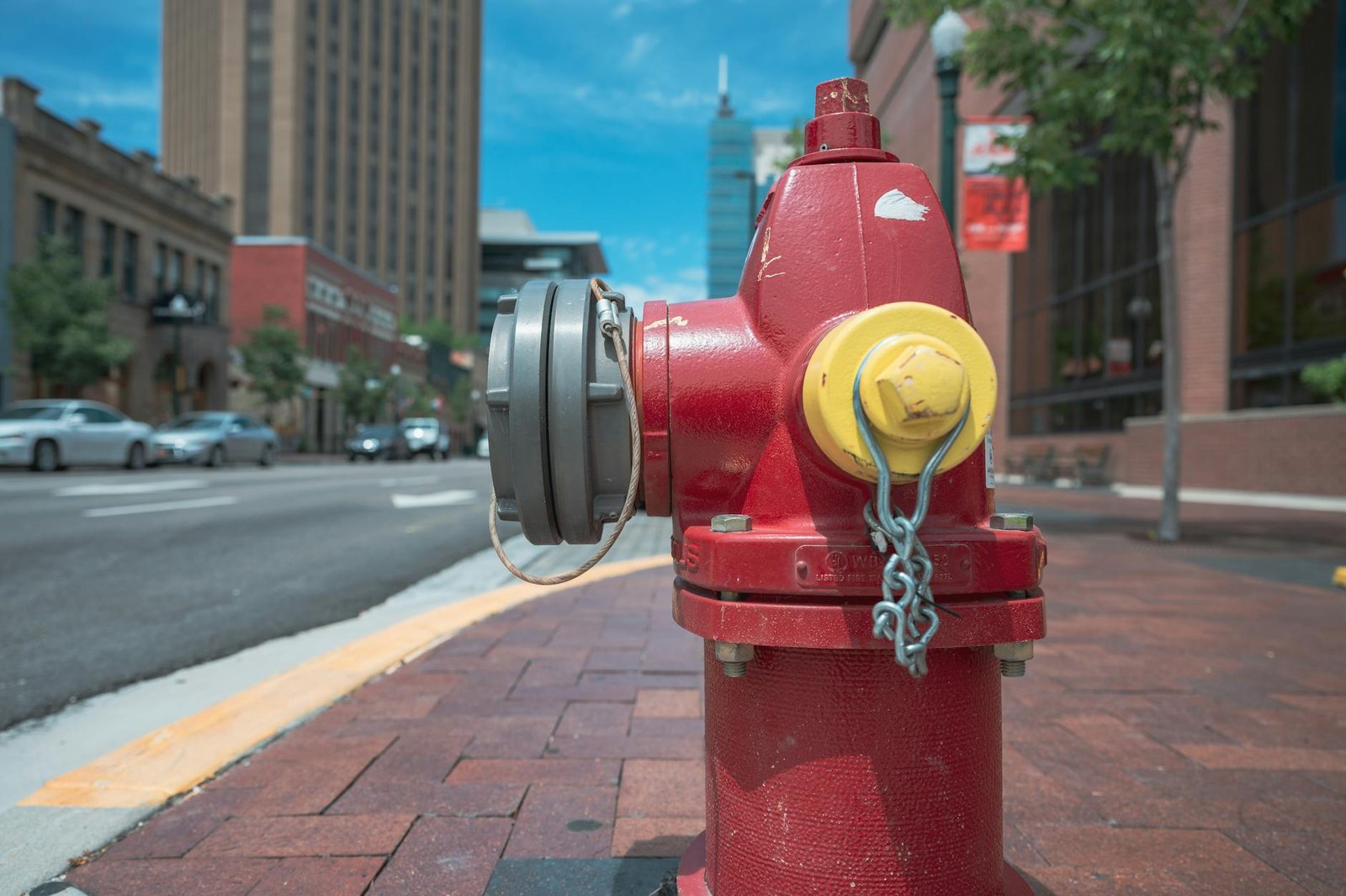How to Become a Health and Safety Officer
If you are interested in a career as a health and safety officer, there are several steps you can take to achieve your goal. In this article, we will explore the responsibilities of a health and safety officer, the qualifications needed, the working hours, what to expect in the role, and the personal qualities required.
Responsibilities of a Health and Safety Officer
A health and safety officer is responsible for ensuring the well-being and safety of employees in the workplace. They are in charge of implementing and enforcing safety policies and procedures, conducting risk assessments, investigating accidents or incidents, and providing training to employees on health and safety matters. Additionally, they must stay up-to-date with health and safety regulations and make sure that the organization complies with them.
Qualifications Needed
To become a health and safety officer, it is essential to have a relevant educational background. Many employers require a bachelor’s degree in occupational health and safety, environmental science, or a related field. Some positions may also require additional certifications, such as the Certified Safety Professional (CSP) or the Occupational Health and Safety Technologist (OHST) certification. These certifications demonstrate a higher level of expertise and can enhance job prospects.
Working Hours
The working hours of a health and safety officer can vary depending on the industry and the organization’s needs. In general, they work full-time during regular business hours. However, they may need to be available outside of normal working hours in case of emergencies or when conducting investigations. Some health and safety officers may also be required to travel to different locations to assess and monitor workplace conditions.
What to Expect in the Role
As a health and safety officer, you can expect a dynamic and challenging role. You will be responsible for identifying potential hazards, developing strategies to mitigate risks, and ensuring compliance with safety regulations. You will collaborate with management and employees to create a safe working environment and promote a culture of safety throughout the organization. This role requires strong analytical and problem-solving skills, as well as excellent communication and interpersonal abilities.
Personal Qualities Required
To excel as a health and safety officer, certain personal qualities are essential. You should have a strong attention to detail and be able to think critically and objectively when assessing workplace hazards. Additionally, you should be proactive, self-motivated, and able to work independently. Good leadership and teamwork skills are also important, as you will need to collaborate with different stakeholders to implement safety measures effectively. Finally, a passion for promoting health and safety and a commitment to continuous learning are vital to succeed in this profession.
By following these steps and acquiring the necessary qualifications and skills, you can embark on a rewarding career as a health and safety officer. Your work will not only ensure the well-being of employees but also contribute to creating safer and healthier workplaces.
Responsibilities of a Health and Safety Officer

As a health and safety officer, your primary responsibility is to ensure the safety and well-being of employees and visitors within a specific workplace. You will be responsible for identifying potential hazards, assessing risks, and implementing measures to prevent accidents and injuries. Some of the common responsibilities of a health and safety officer include:
- Conducting regular inspections of the workplace to identify any potential hazards
- Developing and implementing safety policies and procedures
- Providing training and education to employees on health and safety practices
- Investigating accidents and incidents and recommending corrective actions
- Ensuring compliance with relevant health and safety legislation
- Collaborating with management to establish a safety culture within the organization
- Monitoring and evaluating the effectiveness of safety measures
- Keeping up-to-date with the latest health and safety regulations and best practices
- Conducting risk assessments and developing strategies to mitigate risks
- Creating and maintaining safety records and reports
- Coordinating emergency response plans and procedures
- Providing guidance and support to employees on health and safety matters
As a health and safety officer, you play a crucial role in promoting a safe and healthy work environment. Your attention to detail, knowledge of regulations, and ability to communicate effectively will contribute to the overall well-being of employees and the success of the organization.
Working Hours
The working hours of a health and safety officer can vary depending on the industry and the specific organization. In general, you can expect to work standard office hours, Monday to Friday. However, there may be occasions when you need to work outside of these hours, especially if there is an emergency or if you are conducting inspections during non-working hours.
Health and safety officers play a crucial role in ensuring the well-being of employees and the compliance of organizations with health and safety regulations. As such, their responsibilities often extend beyond regular office hours. For example, in industries such as manufacturing or construction, where operations may continue around the clock, health and safety officers may need to be available during shift changes or even overnight to address any safety concerns that arise.
In addition to being available during non-standard working hours, health and safety officers may also be required to travel to different locations. This could include visiting branch offices, project sites, or remote areas where the organization operates. These visits may involve overnight stays or extended periods away from home, depending on the nature of the work and the geographical spread of the organization.
Furthermore, health and safety officers often need to be prepared to respond to emergencies or incidents that occur outside of regular working hours. This could involve being on call to provide immediate support and guidance to employees or conducting investigations into accidents or near misses that happen during evenings, weekends, or public holidays.
It is important for health and safety officers to have a flexible approach to their working hours and be able to adapt to the needs of the organization. While the majority of their work may be conducted during standard office hours, the nature of the role requires a willingness to go above and beyond when necessary to ensure the safety and well-being of employees.
Additionally, as a health and safety officer, you will be responsible for developing and implementing safety policies and procedures that comply with local and national regulations. This may involve conducting regular inspections and audits of the workplace to identify potential hazards and risks. You will need to have a strong understanding of safety regulations and guidelines, as well as the ability to interpret and communicate them effectively to others.
Another important aspect of your role as a health and safety officer is to provide training and education to employees on safety practices and procedures. This may include conducting safety orientations for new hires, organizing workshops and seminars, and creating informative materials such as brochures and posters. By promoting a culture of safety and raising awareness among employees, you can help prevent accidents and injuries in the workplace.
Furthermore, as a health and safety officer, you will play a key role in incident management and emergency response. In the event of an accident or emergency, you will need to assess the situation, coordinate with emergency services, and ensure that appropriate measures are taken to minimize harm and prevent further incidents. This may involve developing emergency response plans, conducting drills and simulations, and providing guidance and support to employees during crisis situations.
As the field of health and safety continues to evolve, you will also need to stay updated on the latest industry trends and best practices. This may involve attending conferences, workshops, and training sessions, as well as conducting research and networking with other professionals in the field. By staying informed and continuously improving your knowledge and skills, you can effectively contribute to the overall safety and well-being of the organization and its employees.
In summary, being a health and safety officer is a multifaceted role that requires a combination of technical knowledge, communication skills, and problem-solving abilities. It offers the opportunity to make a positive impact on the lives of employees and contribute to the overall success of the organization. If you are passionate about creating safe and healthy work environments and enjoy working collaboratively with others, a career as a health and safety officer may be a fulfilling choice for you.
Personal Qualities Needed to be a Health and Safety Officer

To be successful as a health and safety officer, there are certain personal qualities that are essential. These include:
- Attention to detail: You must have a keen eye for detail to identify potential hazards and risks. This means being able to spot even the smallest signs of danger and taking appropriate action to prevent accidents or injuries. Whether it’s a loose wire or a slippery surface, your attention to detail will play a crucial role in maintaining a safe and healthy work environment.
- Excellent communication skills: You will need to communicate effectively with employees and management to promote a culture of safety. This involves not only conveying important information about safety procedures and protocols but also actively listening to concerns or suggestions from others. By being a good communicator, you can ensure that everyone is on the same page when it comes to health and safety practices.
- Problem-solving skills: Being able to analyze situations and come up with effective solutions is crucial in this role. As a health and safety officer, you will encounter various challenges and obstacles that require quick thinking and problem-solving abilities. Whether it’s finding alternative ways to mitigate risks or implementing new safety measures, your problem-solving skills will be put to the test on a regular basis.
- Ability to work independently: While you will collaborate with others, you should also be able to work independently and take initiative. This means being proactive in identifying potential hazards, conducting risk assessments, and implementing safety measures. You should be self-motivated and able to manage your time effectively to ensure that all necessary tasks are completed in a timely manner.
- Strong ethical standards: As a health and safety officer, you must prioritize the well-being of others and adhere to ethical guidelines. This means acting with integrity and honesty in all aspects of your work. You should be committed to upholding the highest standards of safety and ensuring that all employees are treated fairly and equitably. By maintaining strong ethical standards, you can inspire trust and confidence in your role as a health and safety officer.
Professional Certifications
In addition to formal education and practical experience, obtaining professional certifications can greatly enhance your qualifications as a health and safety officer. There are several recognized certifications available that demonstrate your expertise and commitment to maintaining high standards in the field.
One widely recognized certification is the Certified Safety Professional (CSP) designation, offered by the Board of Certified Safety Professionals (BCSP). To earn this certification, you must have a minimum of a bachelor’s degree in a related field, at least four years of professional safety experience, and pass a comprehensive examination.
Another valuable certification is the Occupational Health and Safety Technologist (OHST) certification, offered by the Board of Certified Safety Professionals (BCSP). This certification is designed for individuals who have a broad understanding of occupational health and safety principles and are responsible for implementing safety programs and procedures in the workplace.
Other relevant certifications include the Construction Health and Safety Technician (CHST) certification, the Certified Hazardous Materials Manager (CHMM) certification, and the Certified Industrial Hygienist (CIH) certification, among others. These certifications demonstrate your specialized knowledge in specific areas of health and safety and can set you apart from other candidates in the job market.
Continuing education and maintaining these certifications is typically required to ensure that health and safety officers stay up-to-date with the latest regulations and advancements in the field. This may involve attending conferences, workshops, or completing additional training courses on a regular basis.
Personal Skills and Attributes
In addition to the formal qualifications mentioned above, there are certain personal skills and attributes that are highly beneficial for health and safety officers. These include:
- Strong Communication Skills: Health and safety officers must be able to effectively communicate with employees at all levels of an organization, as well as external stakeholders. This includes providing clear instructions, delivering training sessions, and conducting investigations.
- Analytical Thinking: Being able to analyze data, identify trends, and make informed decisions is crucial for health and safety officers. This involves conducting risk assessments, investigating incidents, and implementing appropriate control measures.
- Attention to Detail: Health and safety officers must pay close attention to detail to identify potential hazards and ensure compliance with regulations. This includes conducting thorough inspections, reviewing safety procedures, and documenting findings.
- Problem-Solving Skills: Health and safety officers often encounter complex problems that require creative solutions. Being able to think critically and develop effective strategies to address safety issues is essential.
- Leadership Abilities: Health and safety officers may be responsible for leading safety committees, coordinating training programs, and influencing organizational culture. Strong leadership skills are necessary to effectively implement and maintain safety initiatives.
By possessing a combination of the appropriate qualifications, certifications, and personal skills, you can position yourself as a highly qualified and competent health and safety officer. This will not only increase your chances of securing employment but also contribute to creating safe and healthy work environments for employees in various industries.
Health and safety officers play a crucial role in ensuring the well-being and protection of employees in various industries. Their expertise is in high demand, and as a result, they can find employment opportunities in diverse settings.
Construction: In the construction industry, health and safety officers are responsible for implementing and enforcing safety regulations on construction sites. They conduct regular inspections to identify potential hazards, provide training to workers on safety protocols, and ensure compliance with local and national safety standards. Their presence on construction sites helps prevent accidents and injuries, making construction sites safer for workers.
Manufacturing: Health and safety officers in the manufacturing sector focus on creating a safe working environment for employees. They assess the risks associated with machinery, chemicals, and other equipment, and develop protocols to minimize those risks. They also conduct safety audits, investigate accidents, and provide guidance on the proper use of personal protective equipment (PPE). Their efforts help reduce workplace incidents and promote a culture of safety within manufacturing facilities.
Healthcare: In healthcare settings, health and safety officers work to ensure the safety and well-being of both patients and healthcare professionals. They develop and implement protocols to prevent the spread of infections, such as hand hygiene practices and the proper disposal of medical waste. They also conduct risk assessments to identify potential hazards, such as ergonomic issues for healthcare workers, and suggest measures to mitigate those risks. By prioritizing safety in healthcare facilities, they contribute to the overall quality of patient care.
Government: Health and safety officers can also find employment in government agencies at various levels, such as local, state, or federal. In this capacity, they are responsible for enforcing safety regulations and standards within their jurisdiction. They may conduct inspections of workplaces, investigate complaints, and issue citations or fines for non-compliance. Additionally, they may provide guidance and resources to businesses to help them meet safety requirements. Their work in the public sector aims to protect workers and the general public from potential hazards.
Consulting Firms: Some health and safety officers choose to work for consulting firms, where they provide their expertise to multiple clients across different industries. These officers may be involved in conducting risk assessments, developing safety policies and procedures, and training employees on safety practices. By working with a variety of organizations, they gain valuable experience and contribute to improving safety standards across different sectors.
In conclusion, health and safety officers have a broad range of opportunities in various industries and workplaces. Their role is pivotal in preventing accidents, promoting a culture of safety, and ensuring the well-being of employees and the public. Whether it is on construction sites, in manufacturing facilities, healthcare settings, government agencies, or consulting firms, their presence and expertise are essential for maintaining safe working environments.
How Much Do Health and Safety Officers Earn?

The salary of a health and safety officer can vary depending on factors such as experience, qualifications, industry, and location. According to the National Careers Service in the UK, the average salary for a health and safety officer ranges from £25,000 to £45,000 per year. However, it is important to note that these figures are just averages and there are several factors that can influence a health and safety officer’s earning potential.
Experience plays a significant role in determining a health and safety officer’s salary. Those with several years of experience in the field are likely to earn higher salaries compared to those who are just starting out. This is because experienced professionals have a deeper understanding of health and safety regulations and are better equipped to handle complex situations.
Qualifications also play a crucial role in determining the salary of a health and safety officer. Individuals who hold relevant certifications and qualifications, such as the NEBOSH National Diploma in Occupational Health and Safety, are more likely to command higher salaries. These qualifications demonstrate a high level of expertise and competence in the field, making individuals more valuable to employers.
The industry in which a health and safety officer works can also impact their earning potential. Certain industries, such as construction and manufacturing, often have higher risks and require stricter adherence to health and safety regulations. As a result, health and safety officers working in these industries may earn higher salaries compared to those in less hazardous sectors.
Location is another factor that can influence a health and safety officer’s salary. Salaries can vary significantly depending on the region or country in which they work. For example, health and safety officers working in major cities or metropolitan areas may earn higher salaries compared to those in rural areas.
Furthermore, as health and safety officers gain more experience and acquire additional qualifications, they may be able to progress to more senior roles within their organizations. This can lead to higher salaries and increased responsibilities. Senior health and safety officers may also have the opportunity to work on large-scale projects or manage teams, further enhancing their earning potential.
In conclusion, while the average salary for a health and safety officer ranges from £25,000 to £45,000 per year, there are several factors that can influence their earning potential. Experience, qualifications, industry, and location all play a role in determining how much a health and safety officer can earn. It is important for individuals in this field to continuously update their skills and knowledge to improve their career prospects and increase their earning potential.
When it comes to specializing in health and safety, there are numerous options available for professionals seeking to make a difference in their chosen field. One of the most popular specializations is construction health and safety, which focuses on ensuring the well-being of workers on construction sites. This specialization involves identifying and mitigating potential hazards, such as falls, exposure to harmful substances, and equipment malfunctions.
Another area of specialization is occupational health and safety, which revolves around the well-being of employees in the workplace. Professionals in this field work to minimize risks and create a safe and healthy work environment for employees. This can involve conducting risk assessments, implementing safety protocols, and providing training on proper procedures and equipment usage.
Environmental health and safety is another important specialization that focuses on protecting the environment and preventing harm to both humans and ecosystems. Professionals in this field work to ensure that companies comply with environmental regulations and implement sustainable practices. They may be involved in assessing the impact of industrial processes on air and water quality, managing hazardous waste, and developing strategies to reduce pollution.
Fire safety is a critical specialization that deals with preventing and managing fires. Professionals in this field are responsible for designing fire safety systems, conducting fire risk assessments, and developing emergency response plans. They work closely with building owners and managers to ensure that proper fire safety measures are in place to protect occupants and property.
Risk assessment and management is a versatile specialization that can be applied to various industries. Professionals in this field are skilled at identifying potential risks and developing strategies to mitigate them. They may work in sectors such as healthcare, manufacturing, or transportation, helping organizations identify and address potential hazards to prevent accidents and injuries.
Overall, specializing in health and safety allows professionals to make a significant impact on the well-being of individuals and the environment. Whether it’s ensuring the safety of construction workers, promoting a healthy workplace, protecting the environment, preventing fires, or managing risks, there are numerous opportunities to specialize and contribute to a safer and healthier world.
Professional Bodies
Joining a professional body can provide numerous benefits for health and safety officers. These organizations offer networking opportunities, access to resources and publications, and professional development opportunities. Some of the well-known professional bodies for health and safety officers include:
- Institution of Occupational Safety and Health (IOSH)
- International Institute of Risk and Safety Management (IIRSM)
- British Safety Council (BSC)
- Chartered Institute of Environmental Health (CIEH)
- American Society of Safety Professionals (ASSP)
- Canadian Society of Safety Engineering (CSSE)
- Australian Institute of Health and Safety (AIHS)
- South African Institute of Occupational Safety and Health (SAIOSH)
These professional bodies provide a platform for health and safety officers to connect with like-minded professionals from around the world. Through conferences, seminars, and workshops, members can exchange knowledge, discuss industry trends, and learn about the latest advancements in the field. The networking opportunities offered by these organizations can be invaluable for career growth and development.
In addition to networking, professional bodies also provide access to a wide range of resources and publications. Members can benefit from research papers, case studies, and best practice guidelines that can enhance their understanding of health and safety issues. These resources can be particularly helpful when dealing with complex or emerging risks.
Furthermore, professional bodies often offer professional development opportunities such as training courses, certifications, and mentoring programs. These programs can help health and safety officers enhance their skills and knowledge, making them more effective in their roles. By staying up-to-date with the latest industry practices and regulations, professionals can ensure they are providing the highest level of protection for their organizations and employees.
Joining a professional body is not only beneficial for individual health and safety officers but also for the organizations they work for. By being part of a recognized professional body, organizations can demonstrate their commitment to health and safety, which can enhance their reputation and credibility. Additionally, the resources and expertise provided by professional bodies can support organizations in developing and implementing effective health and safety management systems.
In conclusion, joining a professional body is highly advantageous for health and safety officers. The networking opportunities, access to resources, and professional development opportunities offered by these organizations can contribute to their personal and professional growth. Moreover, the benefits extend to the organizations they work for, as they can gain access to valuable resources and enhance their reputation in the field of health and safety.
Get Started on a Course Suitable for a Health and Safety Officer
If you are ready to pursue a career as a health and safety officer, there are numerous courses available to help you get started. Whether you choose a university degree, a college program, or an apprenticeship, make sure to research and select a course that aligns with your career goals and interests. Remember to consider the reputation of the institution or training provider and the relevance of the curriculum to the field of health and safety.
One option to consider is obtaining a university degree in occupational health and safety. This type of program typically offers a comprehensive education in the field, covering topics such as risk assessment, hazard identification, emergency response, and regulatory compliance. Additionally, a degree program may provide opportunities for internships or co-op placements, allowing you to gain valuable hands-on experience in real-world settings.
If you prefer a more practical approach, you may opt for a college program focused specifically on health and safety. These programs often provide specialized training in areas such as workplace inspections, incident investigation, safety management systems, and safety training delivery. Many colleges also offer flexible learning options, including part-time or online courses, which can accommodate individuals who are already working or have other commitments.
Another pathway to becoming a health and safety officer is through an apprenticeship program. This option allows you to learn on the job while earning a salary, combining classroom instruction with practical training under the guidance of experienced professionals. Apprenticeships can be a great way to gain hands-on experience and develop the necessary skills to succeed in the field.
Regardless of the educational path you choose, it is important to ensure that the course you select is recognized and accredited by relevant professional bodies. For example, in the United States, the Board of Certified Safety Professionals (BCSP) offers certifications such as the Certified Safety Professional (CSP) and the Associate Safety Professional (ASP). These certifications can enhance your credentials and demonstrate your commitment to professional development.
In conclusion, becoming a health and safety officer requires a combination of qualifications, practical experience, and personal qualities. By following the steps outlined in this article and continuously developing your skills, you can embark on a rewarding career dedicated to ensuring the safety and well-being of others.













